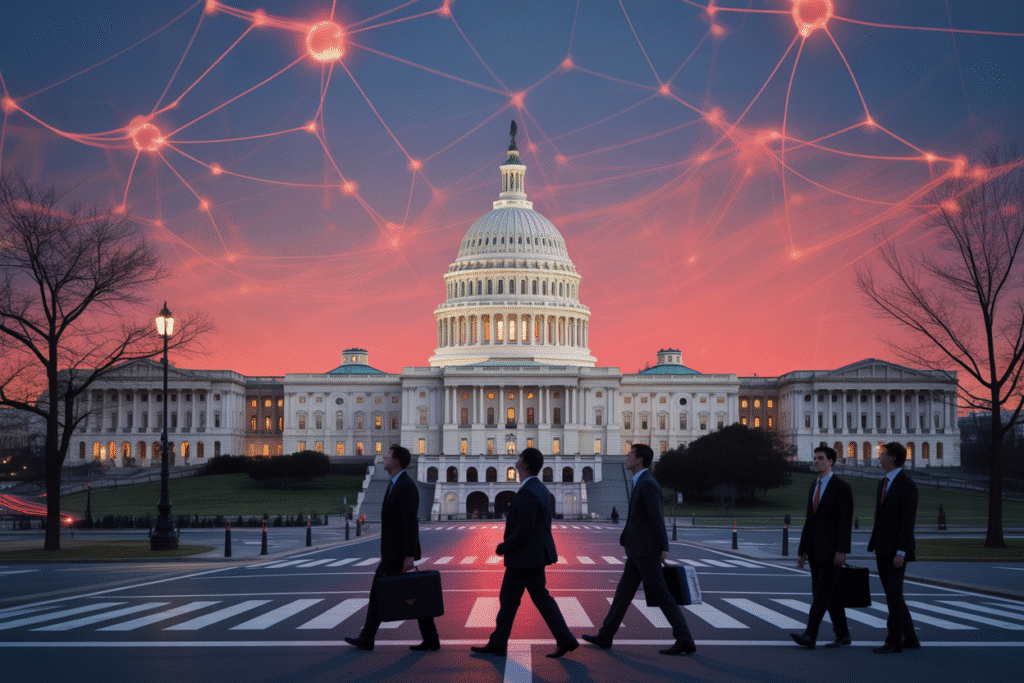Deepfakes, digital ghosts, and the vanishing human touch—why AI’s biggest risk might be losing ourselves.
AI isn’t just changing what we do—it’s rewriting who we are. From deepfake presidents to chatbots that mimic the dead, the line between real and synthetic is dissolving faster than we can update our privacy settings. This post unpacks the three biggest social tremors shaking our digital lives right now.
When Seeing Isn’t Believing
Imagine waking up tomorrow to find your favorite news anchor never existed. Instead, a flawless AI replica delivers the morning headlines, indistinguishable from the real person. How long before you stop asking which stories are true?
This isn’t science fiction. Deepfakes have already slipped past fact-checkers during elections, and the tech keeps getting cheaper. The core fear here isn’t just misinformation—it’s the erosion of shared reality. When anyone can be shown saying anything, trust becomes a scarce currency.
Recent surveys reveal that “truth decay” now outranks job loss as the public’s top AI anxiety. Why? Because once we lose faith in what we see and hear, every debate turns into a shouting match. The stakes aren’t just political; they’re existential for democratic debate itself.
So what can be done? Some call for watermarking every synthetic video, others for stricter libel laws. But the real fix may be cultural: teaching media literacy the way we once taught drivers’ ed. After all, the best firewall against fake news is a skeptical mind.
Key takeaways:
• Deepfakes are doubling in quality every six months
• 62% of Americans now doubt the authenticity of online videos
• Watermarking helps, but won’t stop malicious actors
• Schools in Finland already run “fact-checking” classes for teens
Digital Ghosts and Stolen Voices
Scroll through your feed and you’ll spot it: a childhood friend turned into a 3D avatar, still posting vacation pics long after they’ve passed away. Creepy? Maybe. But for some, these AI ghosts offer comfort, a way to keep conversations going.
The ethical maze here is thick. Consent is murky when the deceased can’t speak for themselves. Grief counselors warn that chatting with a simulation might freeze the mourning process, turning loss into an endless loop. Yet startups are racing to monetize “legacy bots,” promising families a digital shrine that never forgets.
Then there’s identity theft in the other direction. Voice clones have already tricked HR departments into wiring paychecks to scammers. Imagine a future where your boss’s voice orders you to stay late—except it’s not your boss. The boundary between person and persona dissolves.
Regulators are scrambling. The EU’s proposed AI Act labels impersonation tools as “high-risk,” requiring audits and transparency reports. Meanwhile, in the U.S., a patchwork of state laws leaves victims chasing justice across jurisdictions. The tech, unsurprisingly, moves faster than the law.
Quick checklist to protect yourself:
1. Enable two-factor authentication on all voice-sensitive accounts
2. Agree on a “safe word” with family for emergency calls
3. Ask platforms to add “synthetic media” labels on avatars
4. Support nonprofits pushing for federal biometric privacy laws
The Quiet Cost of Convenience
Picture a town where the local diner is staffed by robots that remember your order but never ask about your day. Efficiency soars, yet something feels off. That “something” is human connection, and it’s becoming the quiet casualty of our AI race.
Dating apps now use algorithms to predict compatibility, but users report feeling more disposable. Mental-health chatbots offer 24/7 support, yet can’t replace the warmth of a friend’s hug. We’re optimizing for convenience while sidelining the messy, beautiful parts of being human.
The irony? The more we automate empathy, the more we crave it. Book clubs and pottery classes are surging as people seek analog spaces where glitches are charming, not bugs to fix. Even tech workers are unplugging on weekends, trading screens for soil in community gardens.
Policy can’t legislate loneliness away, but it can nudge. Tax credits for companies that maintain human customer service, grants for libraries hosting storytelling nights, or simply requiring a “human option” in automated call centers—these small moves keep the social fabric intact.
What you can do today:
• Schedule one screen-free meal per week
• Join a local club that meets in person
• Ask your reps to support the “Human Touch Act” (yes, it’s real)
• Share this post with someone who needs a nudge to log off


